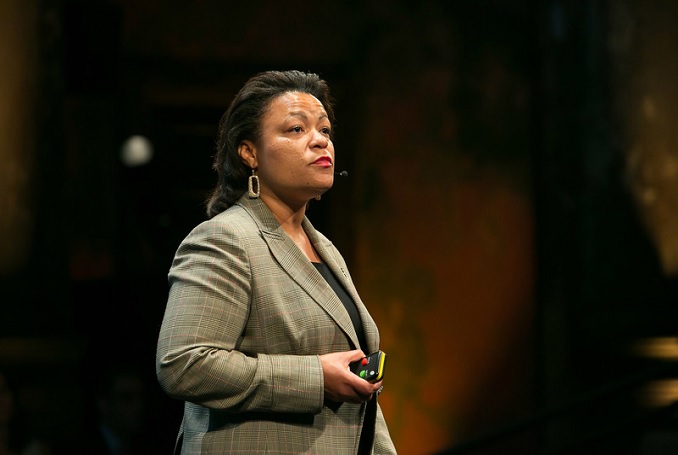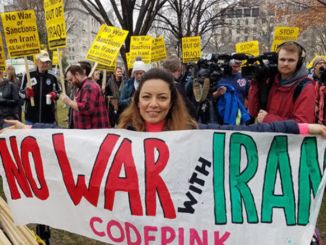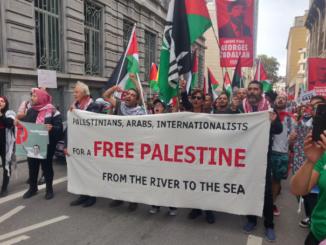
Just weeks after passing a resolution backed by the pro-Palestinian Boycott, Divestment, and Sanctions, BDS, movement, the New Orleans city council rescinded the resolution after it came under heavy fire from Jewish and pro-Israeli groups.
While the resolution had made no mention of Israel, it called for investigating and blacklisting corporations and companies that do work with states or groups that violate human rights in line with BDS principles. The resolution was in fact drafted by the Palestinian Solidarity Committee branch in the city, a member organization of the BDS movement.
Amnesty International USA issues statement supporting New Orleans City Council human rights resolution #BDS https://t.co/OeYgS6NFMK
— Adalah-NY (@AdalahNY) January 25, 2018
The resolution was celebrated by pro-Palestinian activists as a victory for BDS and its principles and thus was immediately attacked by conservative Jewish groups and pro-Israel politicians in the U.S..
“The BDS movement, which has inherently anti-Semitic components, is designed to challenge Israel’s economic viability and very right to exist,” the Jewish Federation of Greater New Orleans, JFGNO, said in a statement on Jan. 12 a day after the measure was passed.
“While city council members feigned innocence, claiming to be totally unaware of the resolution’s anti-Israel and anti-Semitic meaning, pro-BDS activists and anti-Semites around the nation rejoiced,” pro-Israel Louisiana’s Republican Sen. Bill Cassidy said attacking the city council in a fundraising email for his re-election campaign according to The Intercept.
The New Orleans council caved to pressure and withdrew the resolution on Thursday according to local media. In a joint statement, JFGNO and the Anti-Defamation League, ADL, welcomed dropping the resolution, saying that BDS “does not advance the discussion towards meaningful resolution and peace between Israelis and Palestinians, or a workable two state solution.”
The resolution had made no mention of Israel or the BDS movement. The language was purposefully broad, organizers said, in order to be inclusive of other marginalized groups. https://t.co/pKvtee4KeY
— The Intercept (@theintercept) January 26, 2018
Meanwhile, Palestinian activists and their supporters slammed the city over backing away from the resolution calling it a cowardly act.
Tabitha Mustafa, founder of the New Orleans Palestinian Solidarity Committee told The Intercept that the city council’s walk-back “sounds like they’re saying human rights just aren’t important anymore, or they’re saying human rights are important but not if that includes Palestinians, which to me reads as anti-Arab sentiment.”
“What became clear is that there were some groups who support Israel … that were threatened by the notion of human rights accountability precisely because they are very aware that Israel has engaged in the denial of Palestinian human rights,” Yousef Munayyer, executive director for the U.S. Campaign for Palestinian Rights, also told The Intercept.
“They were opposed to human rights accountability for all groups if it meant that Israel might be held accountable for the denial of Palestinian human rights.”
For a brief moment New Orleans had become the first city in Southern U.S. to approve a resolution backed by BDS, after which council members “immediately” received attacks and threats.
“Almost immediately, my fellow council members and I received sharp criticism for the manner in which the resolution was passed, as well as the unintended, but serious consequences of its passage,” Mayor-elect LaToya Cantrell said in a statement according to Middle East Eye.
New Orleans repeals #BDS resolution https://t.co/adKm34604B via @MiddleEastEye & @Harbpeace.
USPCN is proud of the work of the New Orleans Palestine Solidarity Committee! We're with you all the way! Tell us what's next.
— USPalestinianNetwork (@uspcn) January 26, 2018
Although she authored and introduced the measure, Cantrell added that its “unintended impact does not reflect my commitment to inclusivity, diversity, and respect and support for civil rights, human rights and freedoms of all New Orleanians.”
The BDS movement is a non-violent initiative, inspired by the South African anti-apartheid movement, which seeks to apply international pressure until Israel ends the occupation of the West Bank, East Jerusalem, Gaza and the Golan Heights.
New Orleans repeals human rights resolution a week after passing it. “For New Orleans, BDS is a local issue and it will continue to grow in the face of this temporary setback.” https://t.co/ZbzzqZ0oj3 pic.twitter.com/1CgOsqGRvX
— The IMEU (@theIMEU) January 26, 2018
The movement has constantly been labeled “anti-semitic” by Israel and its supporters because it targets Israel and its institutions. BDS activists flatly deny such accusations arguing that their resistance is non-violent and targets the state of Israel rather than the Jewish people.
“There’s nothing anti-Semitic about non-violently resisting state violence,” Max Geller, a member of the New Orleans Palestinian Solidarity Committee, told the Middle East Eye. “There’s nothing anti-Semitic about putting an end to ethnic cleansing and allowing people to stay on their own land.”
(teleSUR, PC, Social Media)








Mr. Netanyahu and friends are very hypocritical when they view other countries laws (that do not suit the Zionist agenda). Israel objects to a new law in Poland that designates the concentration camps built there as Nazi, whilst the State of Israel denies the existence of the Palestinian people and has a school curriculum that has a very biased view of history. It is time for the world to publicly reject such nonsense and apply BDS to the colonial apartheid that Mr. Netanyahu’s government is getting away with subjugating the Palestinian people.
No Arab or Muslim majority country supports the Western concept of human rights, including Palestine-Gaza and Palestine-Ramallah. One can only read such complaints against Israel as either cynicism or hypocrisy.
Indeed the “Western concept of human rights” is very much a concept. Many countries have human rights laws which they apply inconsistently and in a discretionary manner depending on the circumstance. So yes there is a lot of hypocrisy going on and we need to be cynical. It took citizen action boycotting apartheid South Africa before governments finally acted. If we allow blatant human rights abuse to go unchallenged then we may as well forget the Geneva Convention and the United Nations – then there is no hope for humanity.